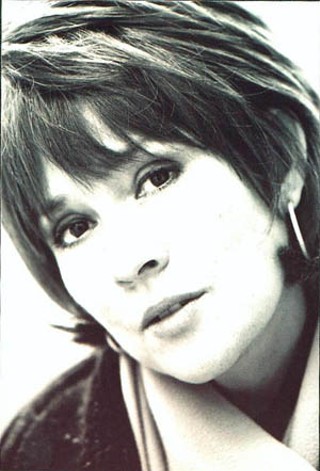TV Eye
War and Remembrance: Part I
By Belinda Acosta, Fri., March 30, 2007

Last week was a very sad week, punctuated by what's turning out to be an even sadder turn of events. Producer and director Natatcha Estébanez died March 15 at the age of 45. She left her mark all over cable and broadcast TV, most notably PBS. She was a series producer for Postcards From Buster and directed 12 short films for the Favorite Poem Project, among other programs. For WGBH in Boston, she was a producer for La Plaza, producing and directing more than 35 documentaries, cultural programs, and music specials for local and national broadcast. Her local connection is with Austin filmmaker Hector Galán, working as a segment producer on Visiones, the six-part series surveying Latino arts and culture that aired in 2004. But I have to say the work that I most appreciate is her feature film, The Blue Diner (2001), directed by Jan Egleson from a script co-written with Estébanez. Just the other day, a friend from California called me after she happened upon "this great little film on PBS about a Latina mother and daughter."
Certain events, certain works become mapped on your emotional, spiritual DNA. The Blue Diner is one of those works for me. There is something powerful about seeing some part of yourself, some version of your existence, made real in a dignified way, and seeing it in a powerful and pervasive medium. Estébanez was not a household name, just another one of those behind-the-scenes soldaderas trying to do good work. She will be missed.

This brings me to the other sad turn of events: the controversy around household name Ken Burns' The War. The buzz started two months ago, but the proverbial you-know-what hit the fan when several high-profile Latino organizations (the American GI Forum, the Congressional Hispanic Caucus Institute, and the National Latino Media Council, to name a few) came out with calls to not air The War until Burns had remedied the exclusion of Latinos in his newest documentary, set to premiere Sept. 23. The strongest statement comes from the GI Forum, which not only calls for viewers to boycott the film and PBS but calls for a "Congressional investigation of PBS funding and [its] grant awarding process."
Burns addressed this controversy in a March 15 episode of NPR's Fresh Air. David Bianculli, TV critic for the New York Daily News, interviewed Burns in a decidedly sympathetic interview that mildly masked his own exasperation at the criticism. Here is Burns' response, quoted from the Fresh Air podcast, offered in its entirety because I think it's important to hear exactly what Burns said:
"I think the way we constructed [The War] sort of renders a little bit of the protest moot. I can understand particularly in the Hispanic community after 500 years of having so much of their history marginalized [on] this continent how important it is to be told, but we knew going in we weren't going to be able to tell the whole story, and in fact we limited the film to four geographically distributed towns and a handful of people from those towns, and we're actually not, with the exception of Japanese-Americans and to a much lesser extent African-Americans, who had an amazingly different kind of American experience, i.e., they were interned and in segregated regiments, looking for any type of people in the film. We were looking for the universal, human experience of battle, what was it like to be in that war, and not try to cover every group. We left out lots of people in many different kinds of groups because we weren't looking at it in that way."
Walk around with this for a week. I know I will. Until then, stayed tuned, because the dust is nowhere near settled on this story.








